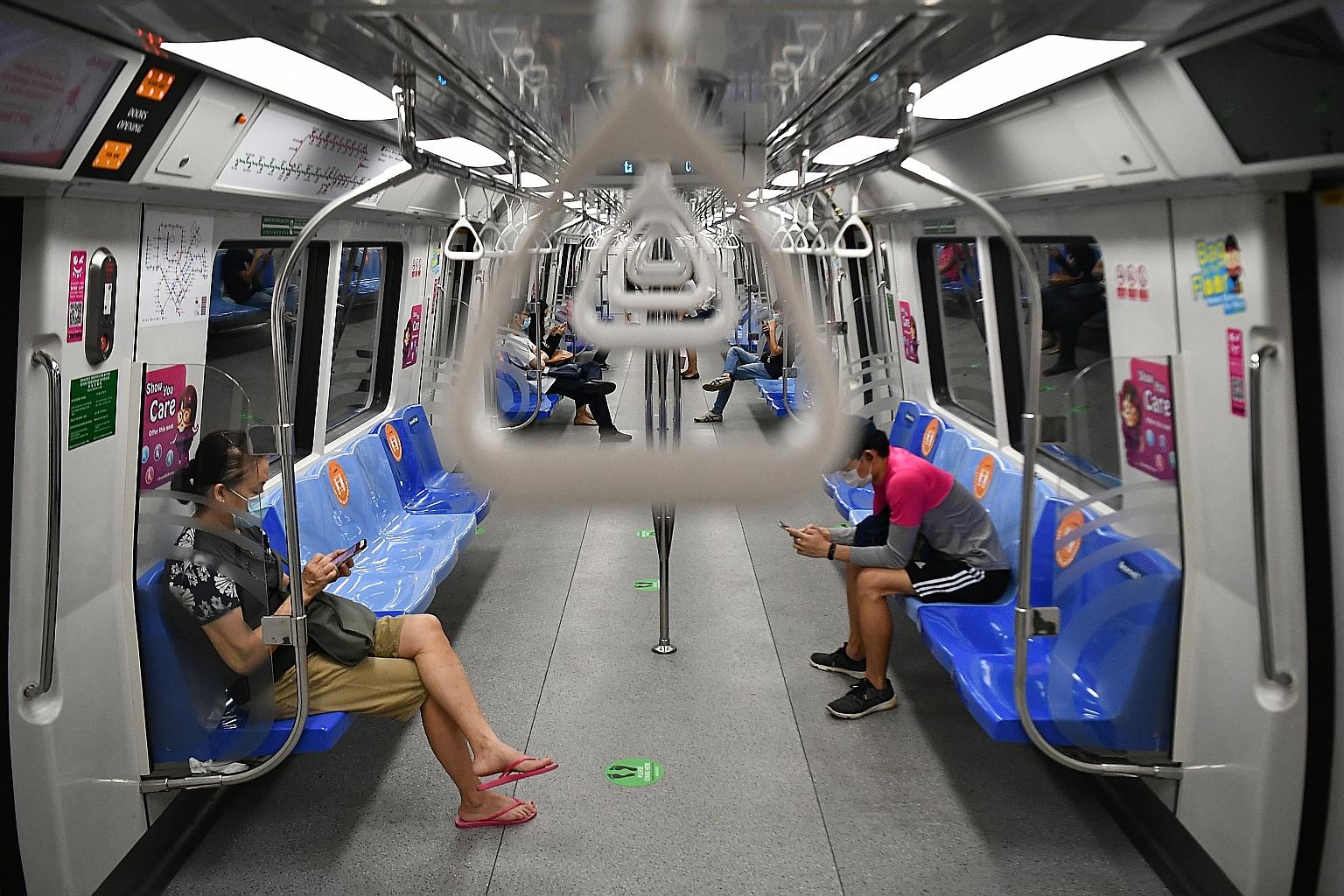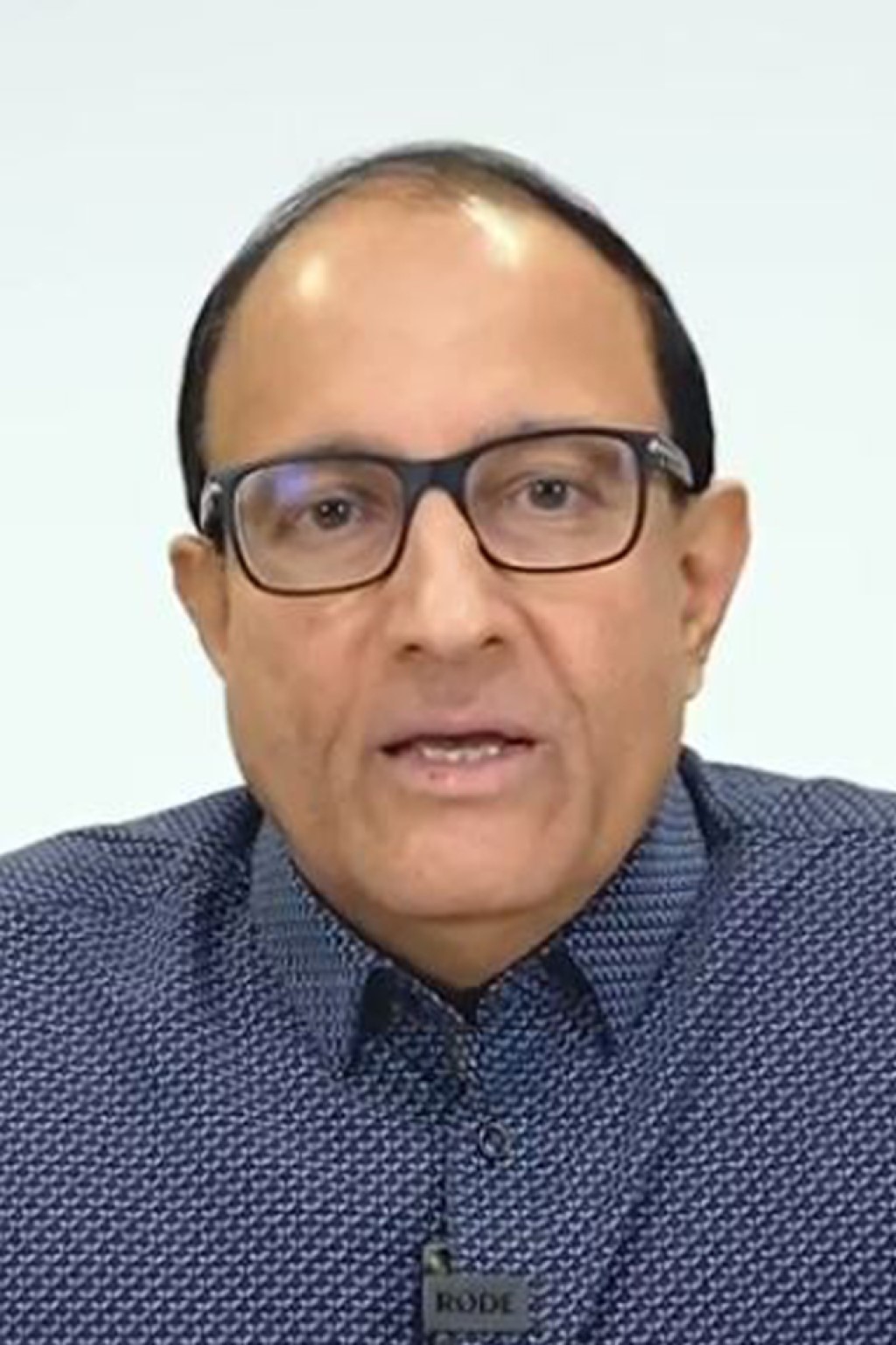Singapore's 5G network operators finalise vendors
Singtel opts for Ericsson while the StarHub-M1 consortium picks Nokia
Sign up now: Get ST's newsletters delivered to your inbox

Advanced 5G technologies promise surfing speeds 20 times faster than what 4G networks offer and the ability to connect 1,000 times as many devices.
ST PHOTO: LIM YAOHUI
Technologies from Sweden's Ericsson and Finland's Nokia will power the core of Singapore's two nationwide 5G networks here, forming the backbone of its digital economy.
The two firms will be the respective key vendors for Singtel and a joint venture between StarHub and M1, which won the rights to build the two nationwide 5G networks, the telcos announced yesterday.
The telcos have to blanket the whole island with 5G connectivity by 2025, bringing Singapore one step closer to a future of driverless vehicles, on-the-go cloud gaming, and robot-run factories and ports.
TPG Telecom did not win the nationwide 5G licence, but it will be allowed to operate smaller 5G networks that provide spot coverage using airwaves that are in abundance.
TPG has selected China's Huawei as its key vendor.
Sector regulator Infocomm Media Development Authority (IMDA) issued the final awards to the four telcos yesterday, following a rigorous review of their business proposals in a regulatory process known as call for proposal (CFP).
At a virtual press briefing, Communications and Information Minister S. Iswaran said: "The final award sets the stage for the development of a world-class, resilient and secure 5G infrastructure, which is going to be the backbone of Singapore's digital economy."
Singtel will be using Ericsson for the core components of its network, while StarHub and M1 have selected Nokia to supply core equipment.
StarHub is also exploring using Nokia and Chinese firms Huawei and ZTE for other network elements, whereas M1 is reviewing Ericsson, Nokia and Huawei.
"Our CFP process did not exclude any vendor... the emphasis was on security, resilience and performance," Mr Iswaran said.
The telcos had also run a rigorous selection process based on their commercial and technical requirements, resulting in a good diversity of vendors participating in different parts of Singapore's 5G ecosystem, he added.

This ecosystem will also continue to evolve, creating "further opportunities for participation", Mr Iswaran said.
The telcos are expected to invest billions of dollars to roll out the 5G infrastructure over the next 15 years of their licence.
"That underscores a certain level of confidence in our economy and the conviction that this investment will yield the returns over that period of time," Mr Iswaran said.
Advanced 5G technologies promise surfing speeds 20 times faster than what 4G networks offer and the ability to connect 1,000 times as many devices.
They are also better able to support mission-critical applications, such as driverless car navigation and remote surgery requiring a constant connection without lag.
Mr Iswaran did not rule out possible network roll-out delays due to the Covid-19 pandemic affecting supply chains and workforce availability. "But as of now, we have no indication that it would be the case," he said.
The original timelines to cover half the island with 5G signals by end-2022, and the entire island by 2025, still apply.
Nationwide coverage is limited to only two networks because of the scarcity of the 3.5GHz airwaves for islandwide reach.
Also, nationwide reach is possible only from next year, when the 3.5GHz airwaves - currently used for satellite communications by countries such as Malaysia - become available.
Beyond the nationwide coverage, there are smaller 5G networks which use shorter-range millimetre airwaves that are in abundance here; these networks can be rolled out as early as this year.
Singtel, StarHub and M1 will also each get millimetre airwaves to operate smaller 5G networks in addition to their nationwide networks.
Singtel group chief executive Chua Sock Koong said the licence is very timely in the light of Covid-19 and the ensuing reliance on robust infrastructure and connectivity.
"Our existing network capabilities have allowed us to pivot quickly to the needs of the public and businesses at this critical time, and 5G will help extend and accelerate the digital adoption we've witnessed as we navigate our way out of Covid-19 towards recovery."
In a statement, StarHub said: "Many future essential services in Singapore will be interconnected to 5G networks from millions of devices and sensors."
M1 chief executive Manjot Singh Mann said 5G's transformational role will drive the next phase of Singapore's digital economy and reinforce its position as the region's technology and connectivity hub.
To support the 5G ecosystem here, IMDA will be launching its 5G Living Lab@Pixel in one-north in September to allow start-ups to develop and test 5G applications.
In the medium term, Mr Iswaran expects job prospects to remain strong in the infocomm sector even though the pandemic may dampen demand in the short term.
"Because every sector is going to adapt and digitalise, 5G, for example, is going to be an important enabler for certain sectors, as a start," he said.
- Additional reporting by Lester Wong


